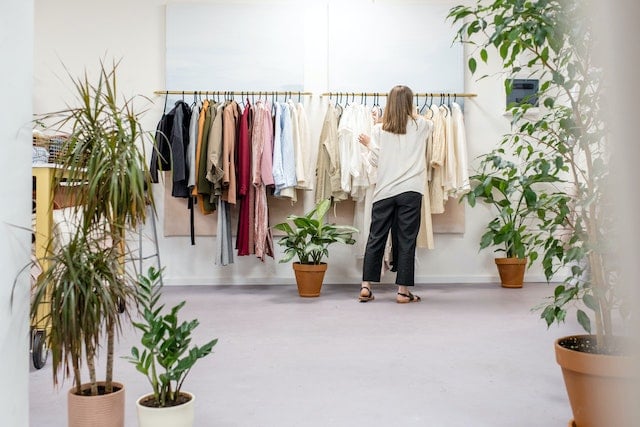Essential Phrases in Afrikaans for Travellers
Afrikaans is a language spoken mainly in South Africa and Namibia. Today, it’s one of the official languages of South Africa and is spoken by over 7 million people worldwide, a number that keeps growing every year. So, aren’t you curious to learn a few phrases in Afrikaans?
Learning Afrikaans is important because it allows for a deeper understanding of South African culture and history. What’s more, it can facilitate better communication and successful interactions when traveling or working in South Africa or Namibia.
If you’re planning a trip to these countries or interacting with Afrikaans speakers, learning a few phrases in Afrikaans can go a long way in building connections and showing respect for the local culture.
In this blog, we’ll teach you a few essential expressions you should use when visiting South Africa!
Table of Contents
Hallo is Afrikaans for Hello
More Afrikaans greetings
Dankie is Afrikaans for Thank you
More phrases in Afrikaans to show politeness
Is there an Afrikaans Happy Birthday?
Afrikaans Phrases for Shopping
Shopping for clothes
Grocery shopping
Miscellaneous shopping phrases in Afrikaans
5 Phrases in Afrikaans for Emergency Situations
The Afrikaans Language: FAQs
1. Is Afrikaans basically the same as Dutch?
2. What country speaks Afrikaans?
3. Is Afrikaans a white language?
4. Could a Dutch person understand Afrikaans?
Learn Afrikaans with Language Trainers
→Sign Up Now: Free Trial Afrikaans Lesson With a Native Teacher!←
Hallo is Afrikaans for Hello
Imagine a stranger comes up to you in the street and asks you to show them something on a map. Wouldn’t you appreciate it if they greeted you first?
Greeting people in their own language is a great way to start a successful interaction.
Even if Hallo (Afrikaans for Hello) is all you can say, you’ll be sure to make a good impression before switching to English.
More Afrikaans greetings
Here are some common Afrikaans greetings with English translations:
- Goeie dag – Good day (Afrikaans Goord morning)
- Hoe gaan dit? – How are you?
- Baie dankie, en met jou? – Very well, thank you, and you?
- Totsients – Goodbye / See you
Dankie is Afrikaans for Thank you
Saying please and thank you is a universal etiquette rule that shows gratitude and respect. And what better way to show respect for a culture than by using their language?
Dankie is Afrikaans for Thank you, and it’s one of the most important phrases in Afrikaans you will ever learn.
Whether you’ve asked for a big favour or someone’s just held the door for you, let them know you appreciate it by saying Dankie!
More phrases in Afrikaans to show politeness
Here are other expressions you can use to wow locals with your manners and make your interactions smoother and more pleasant.
- Asseblief – Please
- Baie dankie – Thank you very much
- Ek waardeer dit – I appreciate it
- Jy is welkom – You’re welcome
- Mag ek jou help? – May I help you?
Is there an Afrikaans Happy Birthday?
The Afrikaans way to say “Happy Birthday” is “Gelukkige Verjaarsdag”. But, instead of just saying Happy Birthday, wouldn’t it be nice to be able to sing the Afrikaans Happy Birthday song?

Image by spemone, via Pexels
Well, we’ll leave the lyrics here just in case!
Gelukkige verjaarsdag vir jou
Gelukkige verjaarsdag vir jou
Gelukkige verjaarsdag, gelukkige verjaarsdag
Gelukkige verjaarsdag vir jou!
Afrikaans Phrases for Shopping
One of the best parts of traveling is being able to indulge in some retail therapy! From stylish clothes to delicious food, shopping in South Africa can be a delightful experience.
Here are some Afrikaans phrases that can come in handy during your shopping adventures:
Shopping for clothes
- Ek soek ‘n nuwe hemp – I’m looking for a new shirt
- Het jy hierdie hemp in ‘n kleiner/groter grootte? – Do you have this shirt in a smaller/larger size?)
- Ek wil graag hierdie broek pas – I would like to try on these trousers
- Hierdie rok lyk baie mooi op jou – This dress looks very nice on you.)
- Kan ek ‘n ander kleur kies? – Can I choose a different colour?
Grocery shopping
- Waar is die melk en kaas? – Where is the milk and cheese?
- Ek soek vars groente en vrugte. – I’m looking for fresh vegetables and fruit
- Kan ek betaal met my kredietkaart? – Can I pay with my credit card?
- Ek het ‘n sakkie gesoekte aartappels nodig – I need a bag of peeled potatoes
- Het jy enige vars brood? – Do you have any fresh bread?
Miscellaneous shopping phrases in Afrikaans
- Ek soek ‘n nuwe horlosie – I’m looking for a new watch
- Het jy ‘n rekenaar muis wat ek kan gebruik? – Do you have a computer mouse that I can use?
- Ek wil graag hierdie geskenk vir my vriend koop – I would like to buy this gift for my friend
- Hoeveel kos dit? – How much does it cost?
- Kan ek dit terugbring indien ek nie tevrede is nie? – Can I return it if I’m not satisfied?

Image by Ksenia Chernaya, via Pexels
5 Phrases in Afrikaans for Emergency Situations
In case of an emergency, it’s important to know some basic phrases in Afrikaans to be able to communicate effectively and get the help you need. Here are 5 live-saving expressions to keep in mind:
- Ek het hulp nodig – I need help
- Daar is ‘n noodgeval – There is an emergency
- Skakel asseblief ‘n ambulans/polisieman/brandweer – Please call an ambulance/police officer/firefighter
- Ek is beseer – I am injured
- Kan jy my asseblief help? – Can you please help me?
Remember that in an emergency situation, it’s important to remain calm and speak clearly. Also, try to provide as much information as possible about the situation and your location to the person you are communicating with. Bly veilig! (Stay safe!)
Learning Afrikaans is a great way to immerse yourself in South African culture, and these phrases will be sure to give you a head start. From shopping phrases to emergency situations, you now have the necessary words at your fingertips! Go forth and show off your linguistic prowess with confidence.
Do you have a burning question about the Afrikaans language that you would like to find answers to before learning more?
Check our FAQs section or get in touch with us now!
The Afrikaans Language: FAQs
1. Is Afrikaans basically the same as Dutch?
Afrikaans and Dutch are very similar languages, as Afrikaans evolved from the Dutch language spoken by early settlers in South Africa. However, there are also significant differences in vocabulary, pronunciation, and grammar between the two languages.
2. What country speaks Afrikaans?
Afrikaans is primarily spoken in South Africa and Namibia. It is one of the official languages of South Africa, along with English, Xhosa, Zulu, and others.
3. Is Afrikaans a white language?
Afrikaans was initially spoken by white settlers in South Africa, but it has since become a language spoken by many people of different races and ethnicities in South Africa and Namibia. While Afrikaans has historical associations with the apartheid era in South Africa, it is still widely spoken and celebrated as an important part of the country’s cultural heritage.
4. Could a Dutch person understand Afrikaans?
Dutch speakers can generally understand Afrikaans to a significant degree, as the two languages are closely related. However, there are also many differences in vocabulary and grammar between the two languages, which can sometimes make it difficult for speakers of one language to fully understand the other.
Learn Afrikaans with Language Trainers
Would you like to go beyond basic phrases in Afrikaans and work on your grammar, pronunciation, and communication skills? Language Trainers offers tailored one-on-one or small group Afrikaans language courses that are designed to help you reach your language goals in a fun and effective way.
→Sign Up Now: Free Trial Afrikaans Lesson With a Native Teacher!←
With our Afrikaans courses, you will be able to:
- Understand and use everyday phrases in Afrikaans
- Communicate on various topics related to your daily life, work, or interests
- Become more confident with the language and improve your pronunciation
- Learn about South African culture and customs.
- Get personalised feedback on your progress
Contact us today to find out more about our premium Afrikaans packages and get started on your journey of language learning! We look forward to hearing from you!
